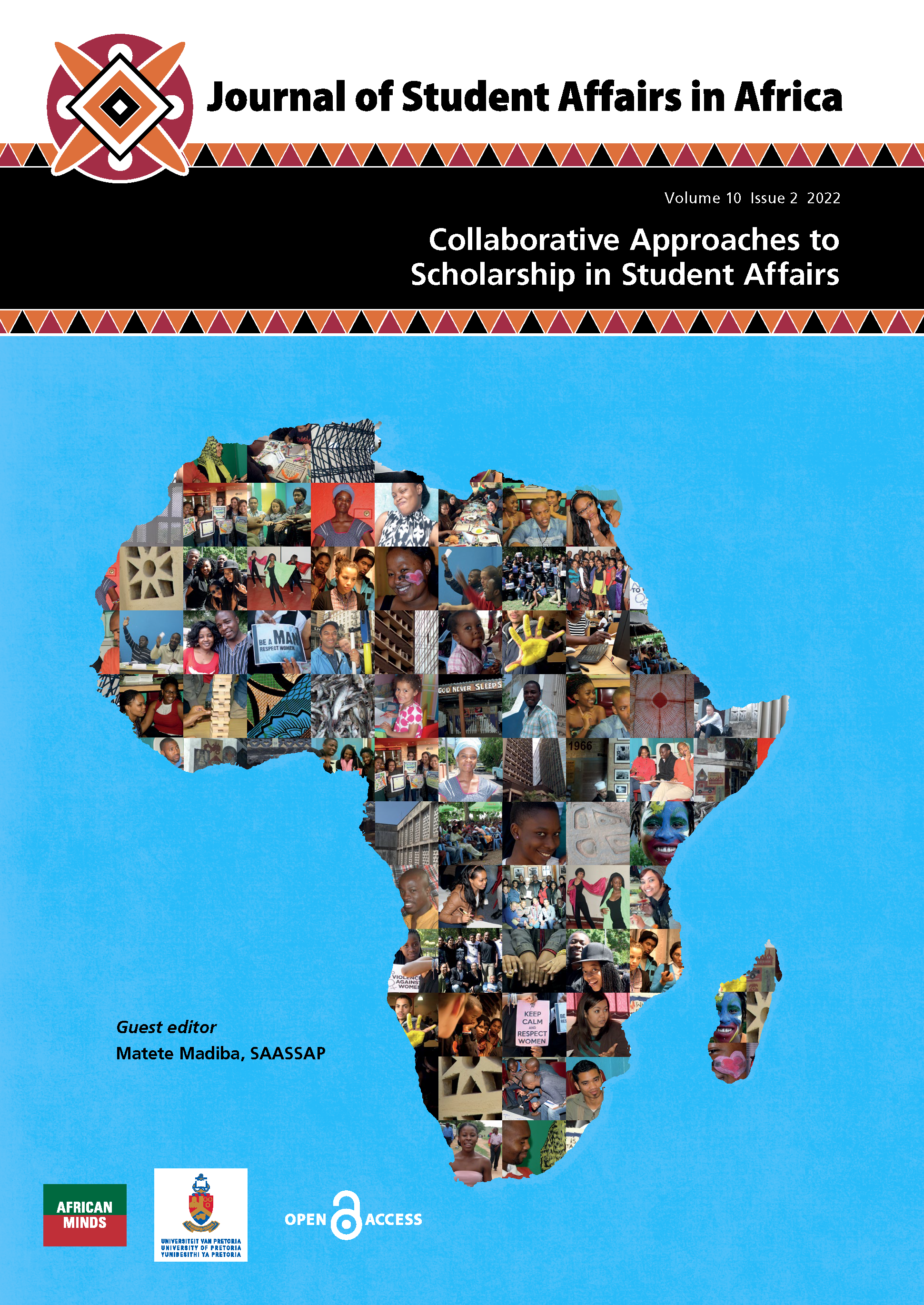Facilitating first-year student adjustment: towards a model for intentional peer mentoring.
DOI:
https://doi.org/10.24085/jsaa.v10i2.3781Abstract
Attrition of first-year university students remains a global problem, and is also of great concern in South African higher education. In an effort to address this challenge, many higher education institutions offer peer mentoring programs to assist first-year students with their adjustment to university life, in order to improve their retention. However, evidence of the effectiveness of such peer mentoring programs is still limited. This article intends making a contribution in this regard.
Stellenbosch University introduced its BeWell Peer Mentoring Program in 2013. In addition to providing psycho-social support, mentors offer developmental initiatives on holistic wellness to assist first-year students with their adjustment. After an institution-wide roll-out of the program, the question arose whether the BeWell Peer Mentoring Program actually assisted first-year students in adjusting to campus life. In order to answer this question a research study with a sequential mixed-method design was employed.
Our study found that adjustment outcomes were influenced by the intensity of peer mentoring participating students received. Mentor attributes, time invested in mentoring, reasons for mentoring and the wellness component of the program all influenced the peer mentoring received. The findings underscored the importance of selecting intentional mentors, and effective program implementation and monitoring. A model for intentional peer mentoring is proposed, to optimise the program outcomes. Other institutions with similar programs could also benefit from the proposed model.
Downloads
Published
Issue
Section
License
Copyright (c) 2022 Angelique McConney, Magda Fourie-Malherbe

This work is licensed under a Creative Commons Attribution-NonCommercial-ShareAlike 4.0 International License.
Authors who publish with this journal agree to the following terms:
Authors retain copyright and grant the journal right of first publication with the work simultaneously licensed under the Creative Commons Attribution Share-alike 4.0 International License that allows others to share the work with an acknowledgement of the work's authorship and initial publication in this journal.
Authors are able to enter into separate, additional contractual arrangements for the non-exclusive distribution of the journal's published version of the work (e.g., post it to an institutional repository or publish it in a book), with an acknowledgement of its initial publication in this journal.
Authors are permitted and encouraged to post their work online (e.g., in institutional repositories or on their website) prior to and during the submission process, as it can lead to productive exchanges, as well as earlier and greater citation of published work (See: The Effect of Open Access).


